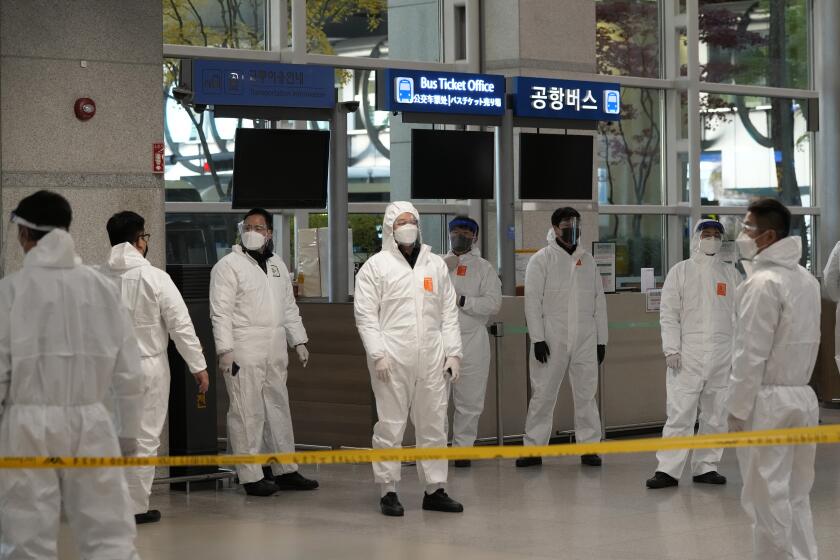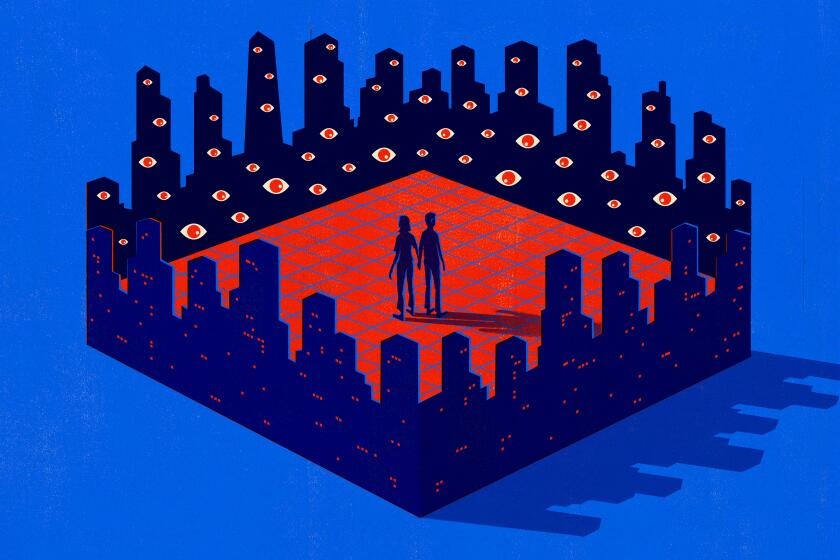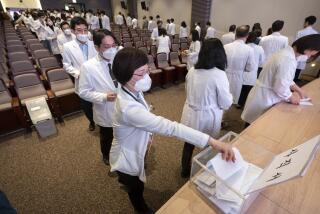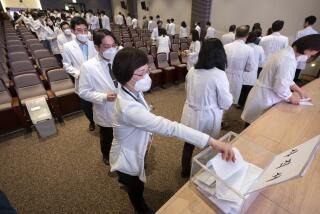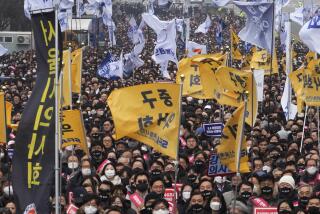South Korea marks its deadliest day of the pandemic as hospitals buckle under strain
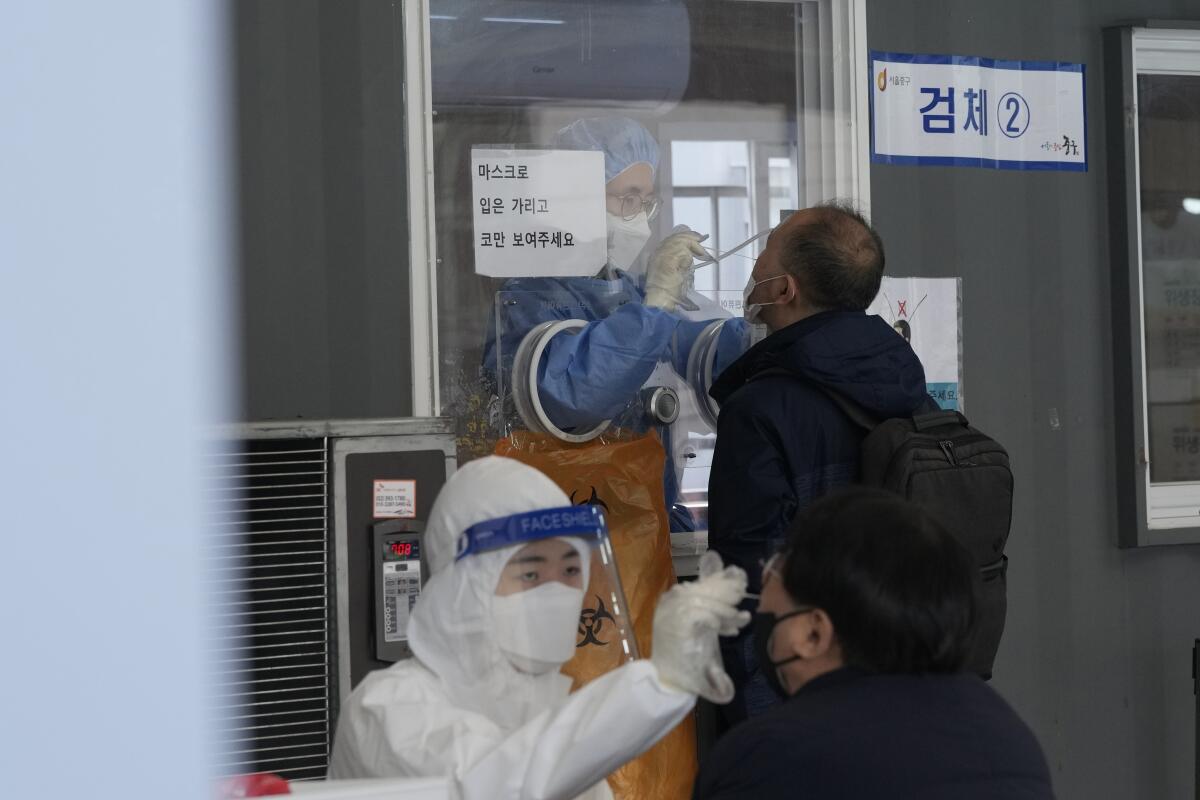
- Share via
SEOUL — South Korea on Tuesday marked its deadliest day of the COVID-19 pandemic as an unrelenting, Delta-variant-driven spread stretched hospitals thin and left people dying while waiting for beds.
Health experts warn that the country’s medical system is quickly approaching its limit and that the number of fatalities could worsen if the government continues to be slow to tighten social restrictions.
The Korea Disease Control and Prevention Agency said 94 COVID-19 patients died in the last 24 hours, with a record 906 in serious or critical condition.
The 5,567 new infections were the highest yet for a Tuesday — daily tallies are usually lower at the start of the week because of fewer tests on weekends — indicating that transmission has continued to gain speed even after the government imposed some modest social-distancing measures last week.
Park Hyang, a senior Health Ministry official, said medical resources were quickly running out in the densely populated Seoul metropolitan area, where around 86% of intensive care units designated for COVID-19 treatment were already occupied. More than 1,480 patients were still waiting to be admitted to hospitals or treatment shelters.
At least 17 patients died last week at home or at facilities while waiting for beds.
South Korea’s first confirmed coronavirus infections with the new Omicron variant are linked to arrivals from Nigeria.
Officials have ordered hospitals to set aside more beds for COVID-19 patients and scrambled to speed up the administration of booster shots by shortening the interval between second and third shots from four or five months to three months. As of Tuesday, more than 81% of people in the country of more than 51 million were fully vaccinated, but only 13% had had boosters.
Officials may decide to increase social restrictions this week, depending on the number of infections and hospitalizations, Park said at a news briefing.
Experts say South Korea’s devastating surge underscores the risk of putting economic concerns before public health when the highly contagious Delta variant has reduced the effectiveness of vaccines and most people are still waiting for booster shots.
The country reported around 6,000 new cases a day last week, including three consecutive days of more than 7,000. That was three times the level of 2,000 at the start of November, when the government significantly eased social-distancing rules in what officials described as the first step toward restoring pre-pandemic normality.
Today’s young are born into a digitally interconnected reality where big data and artificial intelligence will shape everyday existence long before the children are old enough to protect their privacy or give consent.
In allowing larger gatherings, longer indoor-dining hours and the full reopening of schools, officials were relying on improving vaccination rates to suppress hospitalizations and deaths even if the coronavirus continued to spread. But there has been a surge in hospital admissions among people in their 60s or older who are not fully vaccinated or whose immunity has waned since their inoculations during the earlier phase of the vaccine rollout, which began in February.
Even as infections grew this month, the government has hesitated to re-impose stronger restrictions, citing public fatigue, and President Moon Jae-in declared that the country would not “retreat to the past.”
Officials waited until last week to ban private gatherings of seven or more people in the greater capital region and require adults to verify vaccination status to enter restaurants and other indoor venues.
Health experts have called for stronger measures, such as more working from home and expanding the government’s financial support to small businesses to ensure their compliance with social distancing.
“What we absolutely need now is an urgent standstill to allow our medical system to restore its ability to respond” to the coronavirus, a coalition of doctors’ groups, including the Korean Society of Infectious Diseases, said in a statement Monday. “We express deep concern that there will be a high possibility of serious fatalities if [the government] fails to employ stronger measures to reverse the crisis before it’s too late.”
More to Read
Sign up for Essential California
The most important California stories and recommendations in your inbox every morning.
You may occasionally receive promotional content from the Los Angeles Times.
